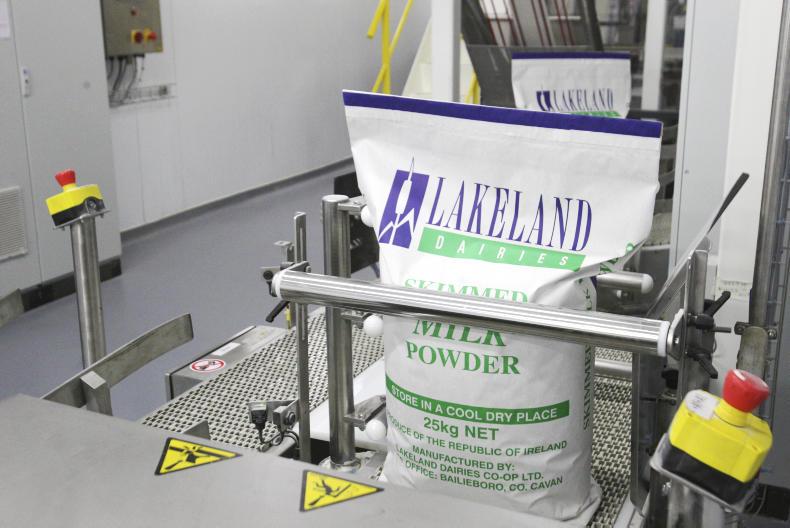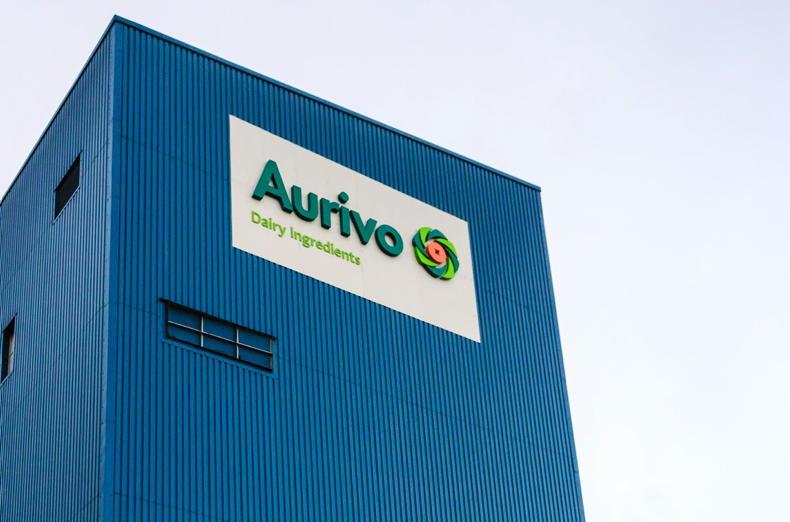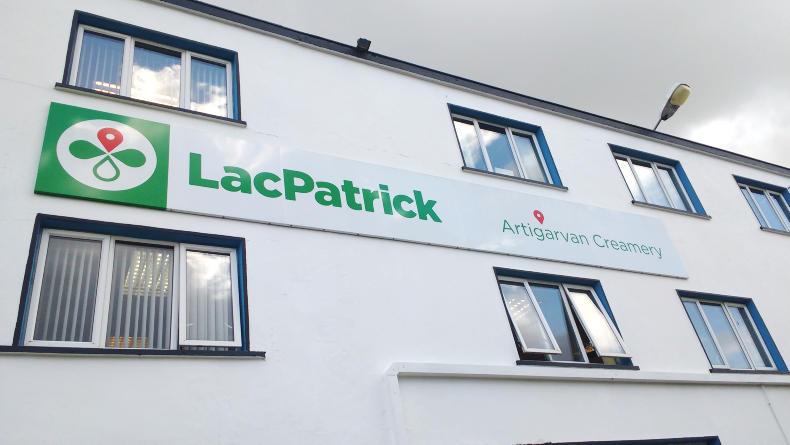Following the decision by the board of LacPatrick to explore its future options back in April, Lakeland has emerged as the preferred option with both co-ops starting into an exclusive process of merger talks.
The process to determine the future of LacPatrick has been relatively steady thus far, with four co-ops (Lakelands, Aurivo, Glanbia and Dale Farm) initially looking in detail at the Monaghan-based co-op over the past six weeks. Professional services firm Ernst and Young handled the talks on behalf of LacPatrick.
Should a merger deal go ahead, Lakeland will overtake Dairygold to become the second-largest dairy processor on the island of Ireland after Glanbia Ireland.
Assuming all the supply from LacPatrick goes to Lakeland, it will process a further 600m litres of milk on top of the 1.2 billion litres it processed last year. With a milk pool of 1.8bn litres, this would push Lakeland’s milk volumes above Dairygold’s 1.3 billion litres, and closer to Glanbia Ireland’s 2.6 billion litres. In the North, the largest is Dale Farm which processes 800 million litres.
Milk pool
A key part of any merger going ahead between Lakeland and LacPatrick will be centred around LacPatrick’s milk pool and how much of this supply that the combined entity can hold on to.
LacPatrick came about after the merger of Town of Monaghan co-op and the county Antrim-based Ballyrashane co-op. Ballyrashane had a milk pool of around 100 million litres, supplied by 100 farmer members.
Lakeland already collects around 600 million litres of milk from suppliers in Northern Ireland, with the majority of this sent for processing south of the border. Meanwhile, LacPatrick collects around 500 million litres of milk from its suppliers in Northern Ireland.
If the two co-ops merge, the combined entity will source about 60% of its milk - or over 1bn litres - from Northern Ireland. The balance (700 million litres) would come from dairy farmer suppliers in the Republic of Ireland.
With negotiations underway, Lakeland will no doubt be factoring in that it will see some slippage of milk volumes from the LacPatrick milk pool as some farmers may potentially opt out to supply neighbouring processors such as Dale Farm, Aurivo, Strathroy or Glanbia.
Despite this, Lakeland will be hoping it can hold onto the majority of LacPatrick’s 1,000 dairy farmer suppliers, both north and south of the border.
Financial performance
With annual sales of some €230m, the addition of LacPatrick would push sales at Lakeland close to, or above, the €1bn mark for the first time ever. Lakeland had sales of €770m in 2017, while LacPatrick recorded sales of €234m in 2016.
Based on the historical financial performance of both co-ops, a merger of Lakeland and LacPatrick would create a co-op making operating profits of €15m to €20m per year, depending on dairy market prices and milk volumes. For 2017, Lakeland made an operating profit of €17m, on a 2% profit margin. The business generated some €33m in cash.
Lakeland had net debts of €60m at year-end 2017, while it is understood the normalised net debt figure in LacPatrick is somewhere in the region of €30m. This would mean the combined net debt of both co-ops will be close to €90m.
Given that Lakeland alone has earnings (EBITDA) of €33m last year, that would see it moderately leveraged at around three-times earnings. This should be manageable for the co-op.
Spare capacity
Along with a substantial milk supply, LacPatrick brings with it plenty of spare capacity to process milk. Following an €40m investment in a state-of-the-art 7t/hour drier at its Artigarvan site, in Co Tyrone, LacPatrick has plenty of spare capacity alongside existing facilities in Monaghan town and Ballyrashane. There are also the two original 2.5t/hour driers at the Artigarvan site.
LacPatrick has filled some of this spare capacity in the past by processing milk for other co-ops such as Kerry and Glanbia. The attraction of merging with LacPatrick for Lakeland is that it provides a solution for milk pool in Northern Ireland the event of a hard Brexit.
In essence, a tie-up with LacPatrick will allow it to process the milk it collects from Northern Ireland suppliers in Northern Ireland, thereby removing the need to move milk across the border.
Products
LacPatrick brings with it supply relationships with key retailers in the UK and Ireland including Asda, Tesco, M&S, Sainsbury’s, Musgrave Group (SuperValu), Lidl, Aldi and the Henderson Group (Spar).
LacPatrick manufactures over 30,000t of butter each year in a variety of formats, including the small catering 7g portions (similar to Lakeland). It also sells into retail supermarkets under its own brands and private label.
Following an £8m investment in 2014 the co-op can also manufacture texturized butter for food manufacturing from its Ballyrashane site. LacPatrick also supplies organic butter to Walkers Shortbread. Lakeland already has the capacity to manufacture 50,000t of butter per year at its Bailieboro facility.
Pending the outcome of the talks, a deal with LacPatrick would bring Lakeland into the liquid milk sector for the first time. LacPatrick produces liquid milk under its Champion and Ballyrashane brands, while also producing private label milk for M&S, Aldi and Spar.
LacPatrick also produces 30,000t of whole (WMP) and skimmed milk powder (SMP) each year, mainly for export. Its LP brand has an excellent reputation for quality in world powder markets, and is a brand leader in West Africa.
Around 20% of LacPatrick’s milk pool is destined for infant formula ingredients used by US multinational Abbott at its facility in Cootehill, Co Cavan.
It also brings with it a large-scale, purpose-built yoghurt plant at Monaghan, while Ballyrashane has been producing a hard-style Regato cheese for the Greek region for a number of years.
Around one third of Lakelands business last year was in food service products such as butter, milk sticks and ice-cream, with the remaining two thirds of its business in ingredients. Lakeland’s Bailieboro site already has the capacity to produce 160,000t of milk powders.
Good fit
Overall, a merger with LacPatrick would seem like a good fit for Lakeland as it brings a potential solution to a hard Brexit scenario, as well as a stable of strong brands, additional butter processing capability and a large supply of milk.
LacPatrick would become part of a larger organisation that has a proven track record with financial muscle and a wider range of customers who are looking for more products. If a merger deal is reached between the two co-ops, it will need to deliver in terms of milk price for farmers.
LacPatrick enters into exclusive merger talks with Lakeland Dairies









SHARING OPTIONS